With Joe Biden now preparing to become the 46th President of the United States, the country will face a dramatic shift in leadership. Many Biden supporters look at the results of the historic election and are breathing a sigh of relief that Donald Trump will be a one-term president. However, as President Trump exits office at noon on January 20th, his legacy and impact on the office and our politics will endure. Most importantly, the damage he has done to political norms and institutions of government and society will not simply evaporate in 72 days.
President-elect Biden will govern over a nation that is deeply and passionately divided. Protests outside vote-counting centers in Nevada, Arizona, Pennsylvania, Michigan and elsewhere foretell coming protests of the new Democratic president. The more than 69 million Americans who voted to reelect the president include a portion who are likely unwilling to accept the integrity of the count and the legitimacy of the election, and they are spurred on by the president’s public statements on the matter.
And of course, the president will remain in office for more than two additional months, exercising the same powers he had prior to the election. Appointing judges, pursuing conservative policies, and engaging in congressional negotiations to extract Republican-preferred outcomes will continue.
But something else will continue at the very least and likely increase dramatically: Mr. Trump’s attacks on the institutions of our government. The norms and traditions of a peaceful transfer of power, a lame-duck president facilitating an effective transition, the civil engagement with the president-elect, and the magnanimous attendance of the January inauguration will likely be dashed. In that sense, the president will not go gently into that good night. Instead, he will work to undermine the incoming administration and muddy Mr. Biden’s ability to do the job of president.
But beyond what Mr. Trump will do rhetorically or symbolically, he has damaged our government in ways that require a new administration to work tirelessly to repair. Institutions of oversight such as offices of inspectors general have been gutted and diminished. Thousands of federal employees with years of experience, expertise, and know-how have rushed to the exits over the past four years, unwilling or unable to work under the appointees who lead their agencies. Massive turnover among appointees has crippled agencies’ abilities to do their jobs for years. And morale in some parts of government have plummeted. While morale may change under a new president, it will not bounce back to pre-Trump levels instantly on January 20th.
The president’s impact on regulations have been significant and will take significant amounts of time to undo. Issues of climate change, clean air, clean water, federal land use, immigration, education, and healthcare have been dramatically reshaped under the Trump administration’s regulatory efforts. Many of these changes reversed Obama-era regulatory action—which is to be expected. Others reversed regulatory actions from previous Democratic and Republican presidents.
In addition, Trump’s behavior on the world stage—undermining alliances like NATO, cozying up with murderous dictators while disparaging democratically-elected premiers, and withdrawing from carefully-negotiated multi-national accords—has destabilized America’s standing in a lot of world capitals. Although in many ways, Mr. Biden’s job at the start of President Obama’s term was to assist the secretary of state and other foreign policy officials in rebuilding alliances, that process took years. And it will again.
From a societal perspective, President Trump has contributed to decades-long decay of trust in institutions of government, media, science, and facts. Many Trump supporters doubt whatever the president tells them to doubt, while embracing unfounded and nonsensical conspiracy theories from online communities such as QAnon. That addiction to fact-free beliefs is a contagion that has found its way into the halls of Congress, including members-elect of the House of Representatives from places like Colorado and Georgia. When elected officials refuse to allow facts to get in the way of their beliefs, governance gets harder. In that sense, ignorance is a pre-existing condition, and Donald Trump has made sure the Republican Party no longer covers the medicine to treat it.
Those challenges are complicated by the need to govern with a divided Congress. A Republican Senate, unwilling to work with a new president even on the nation’s most basic needs, will intensify our policy challenges during a pandemic and economic recovery and further degrade the public’s trust in government. But challenges surrounding relations with Congress go deeper than simple gridlock. President Trump and his appointees further deteriorated norms around congressional oversight, refusing to turnover massive numbers of documents to Congress and encouraging members of the executive branch to refuse requests to appear before legislative committees engaging in routine oversight. That precedent is dangerous and a Biden administration must help restore the balance between the legislative and executive branches and reinstitute traditions of cooperation and respect for the constitutional oversight role of the first branch. That will not happen automatically and requires a president committed to returning some form of normalcy to the relationship between the two ends of Pennsylvania Avenue.
In many ways, President Trump damaged already weak or dysfunctional institutions. Simply repairing what he has done to those institutions would be a step in the right direction, but not a solution. It is time for this country to reflect on that systemic challenges, using the damage compounded over the past four years as an opportunity to fix not simply the symptoms of our institutional problems, but their causes.
Democrats, liberals, and opponents of President Trump are rejoicing at the outcome of the 2020 presidential election. However, that elation should not generate laziness or complacency about what lies ahead: a dangerous lame-duck period, an enduring division in the American electorate, and a years-long to-do list. The work of rebuilding government, restoring norms, re-stabilizing alliances around the world, and bringing integrity and decency back to the Office of President of the United States will not happen automatically or quickly. It requires patience from the public and an active commitment from the president-elect, his allies, and his opponents alike.
The Brookings Institution is committed to quality, independence, and impact.
We are supported by a diverse array of funders. In line with our values and policies, each Brookings publication represents the sole views of its author(s).

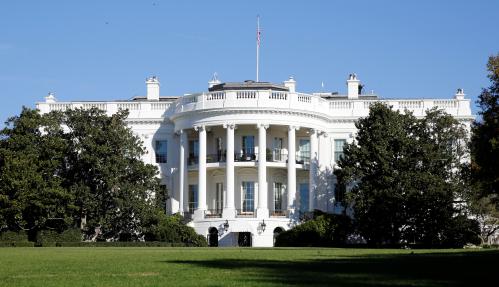
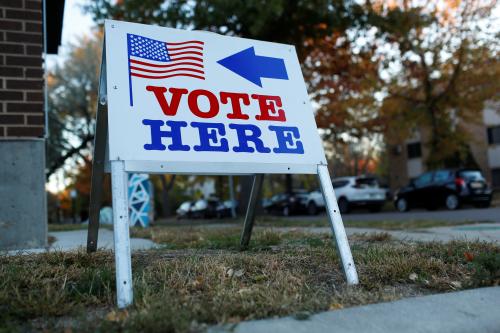
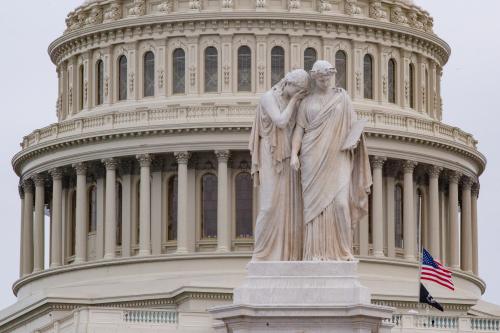
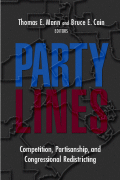
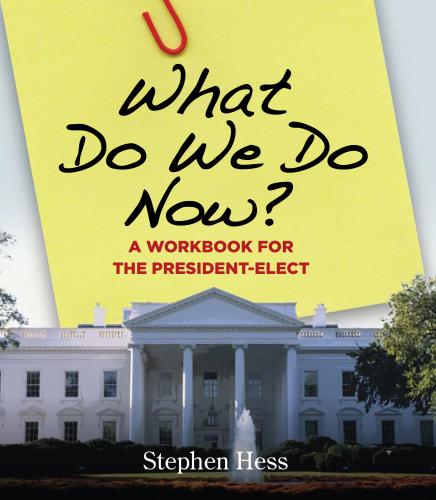
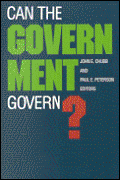




Commentary
Biden won, but our long national nightmare isn’t over
November 9, 2020